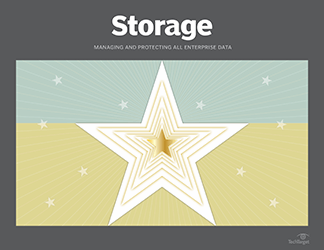PRO+ Premium Content/Storage
Access your Pro+ Content below.
A secondary storage management answer to mass fragmentation

This article is part of the Storage issue of February 2019, Vol. 17, No. 9
The challenge of secondary storage management, long a bane of storage professionals, has become more pronounced in recent years. Today, secondary data often rests in multiple locations -- on site and off site and in the public and private cloud. At the same time, its business value has risen due to analytics. Yet keeping multiple copies of the same data frequently wastes time and resources including manpower, technology and money. Converged secondary storage vendor Cohesity surveyed 900 senior IT decision-makers about mass secondary data fragmentation. The results, released in November 2018, painted a picture of secondary data sprawl hurting revenue while straining IT professionals as they try to meet unrealistic secondary storage management expectations. However, many respondents believe organizations can head off most, if not all, of these headaches and make compliance with industry and international regulations, such as the European Union's GDPR, easier with the proper tools and practices. The vast majority of respondents ...
Features in this issue
-
The best enterprise storage products of 2018
Get to know the 15 top enterprise storage products selected from a field of more than 100 in the 'Storage' magazine and SearchStorage annual Products of the Year competition.
-
A secondary storage management answer to mass fragmentation
A study finds mass secondary data fragmentation across storage silos is negatively affecting IT staff morale and the ability of enterprises to comply with regulations.
News in this issue
-
Top 5 enterprise storage trends of 2018
Dave Raffo won't pretend to know what 2019 will bring to the world of enterprise data storage, but he does know what he learned while following the data storage industry in 2018.
Columns in this issue
-
Cloud repatriation and the trend away from all things cloud
Companies are starting to backtrack when it comes to their enthusiasm for public clouds. More and more are bringing workloads and storage resources back in-house.
-
Data protection systems must address GDPR, ransomware concerns
Backup products don't have a granular enough understanding of data to scan or analyze it effectively and fully meet today's privacy and security requirements.
